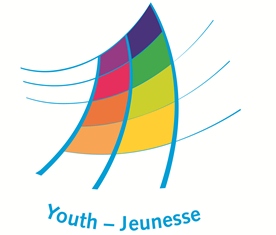The study session “Climbing the ladder - Capacitating youth leaders to facilitate youth participation in decision-making processes at the local level” focuses on two of the five strategic priorities of the Council of Europe youth sector : Revitalising pluralistic democracy (1) and Youth work (4) .
Specifically, it aims to revitalize pluralistic democracy and promote quality development and recognition of youth work through sustainable actions plans, valorizing the role that young people can play in these processes.
 Objectives
Objectives
Aim: The study session aims at empowering a group of young people to advocate for meaningful youth participation at the local and regional levels. The participants will expand their knowledge about youth work and youth participation in the democratic life of their local communities, including the most recent trends while improving their practical skills in facilitating short activities and designing a youth dialogue process.

Moreover, the participants will complete the study session with a clearer vision and a step-by-step working plan on how to implement the outcomes of the session and be more engaged as young facilitators for democratic processes in their local and regional realities.
Objectives:
- to bring together and train 25 youth leaders from all around Europe about youth participation in the democratic life of their local communities, in line with the most recent mechanisms, recommendations, structures, models;
- to explore the impact of Covid19 in the traditional and formal processes and available spaces for youth participation (youth councils, youth organisations, youth delegate programme, etc) and map new forms of participation that emerged during the pandemic (from the experience of DYPALL Network and that of the participants – e-participation, blended mobilities);
- to reflect on and provide with a wide range of tools, both traditional and digital, that can boost the active participation of young people in their local communities;
- to create and test a learning module based on non-formal education that includes vital elements (such as advocacy principles, outreach strategies, facilitation skills) to build participants’ competencies and strengthen their leadership to activate youth participation at the local level and multiply their learnings and attitudes with their peers;
- to empower 25 youth leaders to continue playing a key role in revitalising democratic processes throughout Europe.
 Organisers
Organisers
DYPALL Network (Developing Youth Participation at Local Level) is a European platform of over 78 civil society organizations and local
authorities from more than 30 countries, that aims to involve young people in decision-making processes at local level, and thus enable municipal and regional authorities to address the needs and interests of youth, engage young people as active actors of problem-solving and increase the level of ownership, commitment and involvement of an important part of our communities.
YP Lab is a resource and mobility centre within DYPALL Network with the focus on research development and capacity building in the field of local youth participation.
In order to realize this ambitious and challenging initiative, DYPALL Network has the following objectives:
- Develop structures and mechanisms for youth participation in decision-making at local level;
- Identify best practices and introduce innovative approaches on public governance in cooperation with local authorities and civil society organizations active in the field of youth;
- Foster youth engagement and inclusiveness in representative and participatory democracy processes;
- Build capacity and provide technical assistance on various areas and processes like policymaking, advocacy, structured dialogue, co-management, and more;
- Mainstream youth policies at the local and regional level (such as youth Guarantee schemes) to develop cohesive and engaged societies.
The Assembly of European Regions (AER) is the largest independent interregional organisation in broader Europe, with around 140 regional authorities as members from 30 countries. Established in 1985, AER is a forum for regional politicians to engage in interregional cooperation and to voice regional interests on the European stage.
AER was a key player in the creation of the advisory bodies to the Council of Europe (Congress of Local and Regional Authorities) and the European Union’s Committee of the Regions. Since its inception, one of the AER’s key priorities has been raising awareness and understanding of the relevance of European policies for regions and their citizens, basing its activities on the principle that sharing information, offering platforms to exchange views and experiences, and creating opportunities to debate issues of general European concern all and contribute to boosting a sense of ownership of the European project among the citizens.
The AER also works extensively in the field of youth policies. Dedicated working groups are established to exchange regional expertise and experiences on how to empower youth, increase their employment opportunities, and strengthen their role in society through education and traineeship, employment, and civic engagement.
Furthermore, the AER runs three youth flagship programmes:
- Eurodyssey is the AER’s youth mobility programme operating between the AER member regions since 1985, aimed at improving the chances of young Europeans to integrate into working life through work experience abroad;
- The Summer Academy is a forum for the exchange of experiences and best practices on regional development in Europe. It was established in 1996 and each year it engages around 150 young participants aged between 18 and 30 years old from across Europe in a dialogue with decision-makers;
- The Youth Regional Network was established in 2008 as a forum of regional-level youth parliaments, Councils and organisations from wider Europe providing youth aged between 15-30 years old a collective voice on the European stage.



